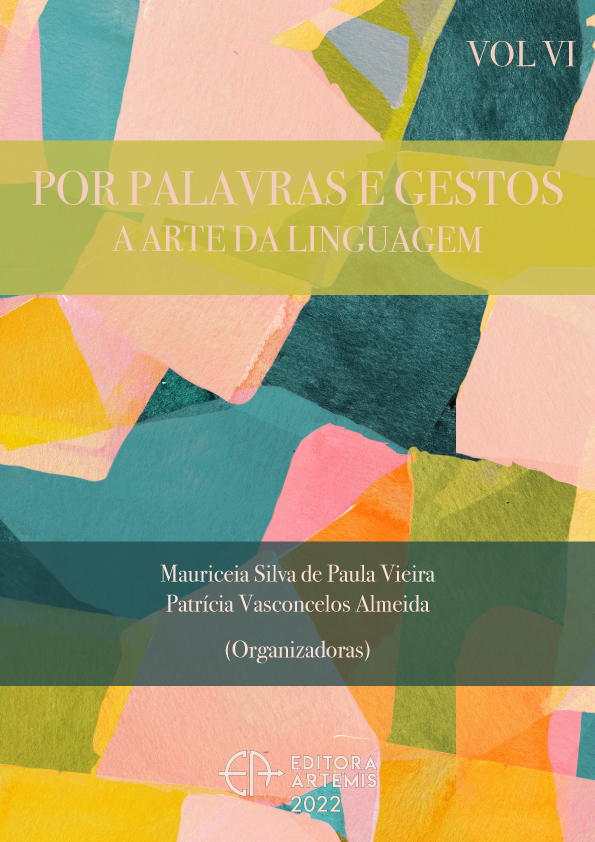
O CONTO NUMA PERSPECTIVA DE FORMAÇÃO CRÍTICA PARA ALUNOS DOS ANOS FINAIS DO ENSINO FUNDAMENTAL
Como perspectiva de formação crítica, este estudo analisa o trabalho com contos, nas aulas de Língua Portuguesa, nos anos finais do Ensino Fundamental de uma escola da rede estadual de ensino, da região Norte de Minas Gerais. O objetivo é promover uma educação crítica, a partir do desenvolvimento de habilidades acerca das temáticas abordadas nos textos. Justifica-se pela necessidade de apresentar aos estudantes estratégias dinâmicas que possibilitem a compreensão, interpretação e produção de textos de opinião. Para isso, foi desenvolvida uma pesquisa-ação, conforme Michel Thiollent (1998), em Metodologia da pesquisa-ação. Aponta-se, neste texto, o conto como gênero textual norteador, por pertencer ao campo literário e por colaborar com a formação literária, crítica e social. Por essa razão, buscou-se contribuir com a preparação dos participantes para atuarem com autonomia e criticidade nos contextos e usos da língua, considerando-a como fenômeno cultural, histórico e social. As atividades interativas e dinâmicas culminaram em apresentações à comunidade escolar do turno vespertino, com exposição literária, apresentação de cadernos de produções dos participantes e dramatizações. Reflete-se acerca do nível e do processo de construção de sentido de textos, com base em respostas dos participantes nas atividades finais da intervenção. O compartilhamento da leitura, trabalhos individuais e em equipes contribuíram para a construção de sentido, formação crítica, para o desenvolvimento da habilidade de leitura, especialmente em aspectos ligados à construção linguística, temática e aos subentendidos das narrativas. Ao final, os participantes apresentaram avanço no desempenho de construir o plano de sentido das abstrações dos discursos, demonstraram apreço aos textos literários e criticidade na elaboração de opiniões.
O CONTO NUMA PERSPECTIVA DE FORMAÇÃO CRÍTICA PARA ALUNOS DOS ANOS FINAIS DO ENSINO FUNDAMENTAL
-
DOI: 10.37572/EdArt_2508226137
-
Palavras-chave: Conto. Formação crítica. Ensino Fundamental.
-
Keywords: Tale. Critical education. Elementary education.
-
Abstract:
As a critical formation perspective, this study analyzes the work with tales, in Portuguese Language lessons, on the final study years of an elementary education by a public school from the state, located north of Minas gerais. The main goal is to promote a critical education, by the development of abilities around the approached tematics of the texts. It is justified by the need of presentation to the students of dynamic strategies that possibilite comprehension, interpretation and opinion texts production. For this, it was made an action-research, according Michel Thiollent (1998), in Methodology of the action-research. It is pointed out, in this text, the tale as a guiding textual genre, by belonging to the literary field and for collaborating to the literary, critical and social education. For this reason, it was sought to contribute to the preparation of the participants to act autonomously and criticity on the contexts of language uses, considering it as a cultural, historical and social fenomen. The interactive and dynamic activities finished in presentations to the school community in the afternoon period, with a literary exhibition, presentation of books and production made by the participants in addition to dramatizations. It reflected around the level and the production process on the construction of the texts, based on the participants' answers on the final activities of the intervention. The reading share, group and individual works contributed to the construction of meaning, especially in aspects related to the linguistic construction, teme and the underlying narratives. Finally, the participants presented an performance advance on the e of construction of a plan of meaning for the abstractions of the speeches, showed appreciation for literature texts and criticality in the elaboration of opinions.
-
Número de páginas: 15
- Cleunice da Silva Lemos
- Antônio Carlos Soares Martins

